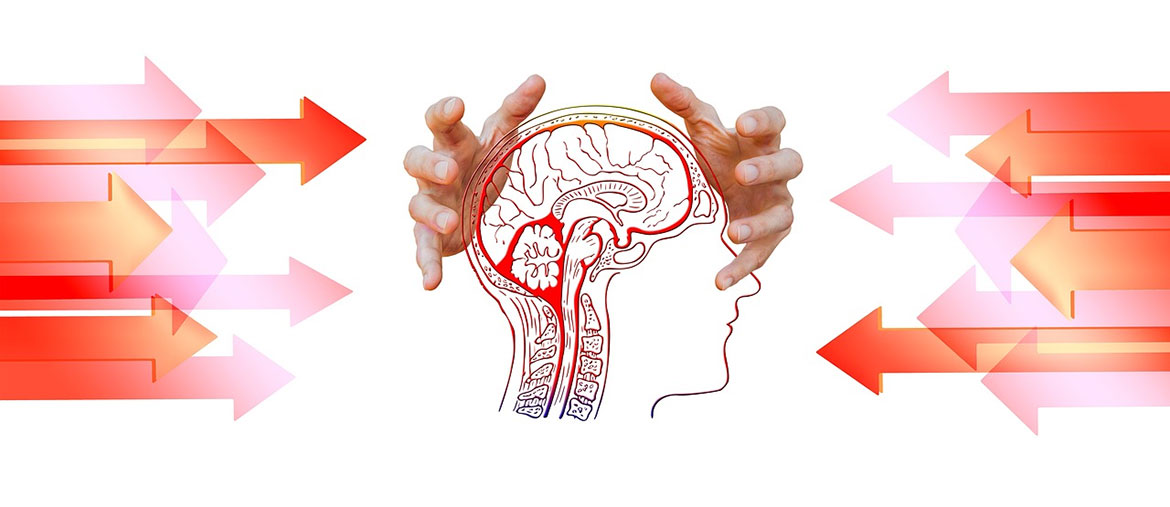Panic Attack or Heart Attack?
15 February 2020

A panic attack might mimic a heart attack
The traffic is massive, and you’re driving alone. That’s not unusual for you. But out of a sudden, you feel tightness on your chest, throat, and you can’t seem to breathe enough. You also feel giddy, your face feels numb, and the body is weak. “Heart attack? Am I going to die? What should I do?” you think to yourself frantically as you experience your heart racing and blood rushing to your head.
You end up in the accident and emergency (A&E) department of a nearby hospital. Luckily, the horrible sensations subside after a series of interviews, blood investigations, scans, and treatments. “Gosh, luckily, I survive the heart attack,” you say gratefully in your prayer. When the doctor returns to conclude the consultation, to your surprise, he says there’s nothing wrong with you. There’s no heart attack; no stroke too. All routine blood tests and scans are normal. The attacks occurred again for the next few days, and your visits to the A&E yield the same outcome. Upon request, they recommend a cardiologist for further assessments.
You manage to get an early appointment to consult a cardiologist. The heart specialist conducts more tests such as ECG, stress test, heart scan, 24-hour heart rhythm monitoring. But, again, there’s nothing wrong with your heart. “Maybe it’s not the heart. Maybe there’s something else undetected,” you worry endlessly. You consult another cardiologist for a second opinion, a neurologist, gastroenterologist, chest physician, endocrinologist, ear, nose, and throat specialist (ENT). All the specialists say the same thing, "there’s nothing wrong with you."
The attacks continue to torment you, although all doctors say you're alright. They come unexpectedly, your self-esteem goes downhill, and work is affected. You don’t dare to drive and travel. You talk to your friends and family, but they don’t understand. Impatiently, they say, “it’s psychological,” “there’s nothing wrong with you!’ “think positive," "it’s all in your mind.’ Feeling helpless, anxious, and confused, you remember an advice from your second cardiologist – consult a psychiatrist. “But I’m not crazy. It’s real. I swear it’s real!”
Reluctantly, you agree to seek help from a psychiatrist recommended by a friend who had a similar experience. Never in your life, you think you’ll end up with a psychiatrist. What to do? You have even tried spiritual healing, which isn’t useful. It’s the last resort – see a psychiatrist.
You’ll soon learn that you’re suffering from a treatable mental health condition – PANIC ATTACK.

Medically unexplained symptoms may be due to an anxiety condition like a panic attack
What is a panic attack?
It’s an anxiety condition that can make a person feel very scared and anxious for short periods. When this happens, it’s called a panic attack. Basically, in a panic attack, the nervous system is hypersensitive, usually due to accumulated stress. The attacks can cause physical symptoms such as chest pain and breathing problems that cause people to visit doctors or emergency rooms frequently. When panic attacks are severe (recurrent, intense, and interfering with your work, studies, or relationships), it’s called panic disorder.
What are the symptoms of a panic attack?
- Feel very scared and nervous
- Physical symptoms:
- Chest pain or discomfort
- Trouble breathing or choking
- A fast heartbeat or pounding heart
- Headache
- Nausea, stomachache
- Sweating
- Dizziness, light-headed, fainting spell
- Trembling/shaking
- Numbness or tingling sensations
- Chills or heat sensations
- Psychological symptoms:
- Fear of dying
- Fear of going crazy
- Fear of losing control
- Feeling being detached from oneself
- Feeling the surrounding as unreal
The attacks happen without warning and can last several minutes to an hour.
People with panic disorder might also:
- Worry about having panic attacks in the future
- Avoid situations that might cause them to have a panic attack
Is panic attack treatable?
There’s hope. Panic attack is a treatable condition.
Yes, it’s a treatable condition with anti-panic medication, counselling, cognitive therapy, relaxation training, mindfulness and acceptance-based therapy, and friends/family support. The greatest obstacle to treatment is when a person does not recognize a panic attack and reluctance to consult a mental health professional due to a poor understanding of mental health and social stigma.
Take-home message?
If you have various medically unexplained symptoms that are reoccurring and repeatedly told by doctors that there’s nothing wrong with you, don’t give up hope. You might have a panic disorder or other anxiety disorders. Consult a mental health professional – psychiatrist or clinical psychologist. There’s hope.
A cardiologist takes good care of your physical heart.
Let the psychiatrist and psychologist take good care of your emotional heart.
Tags: heart,panic,mental health







